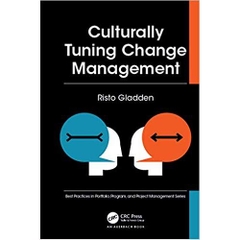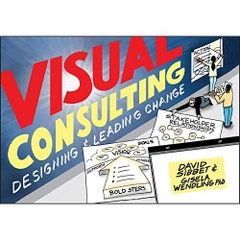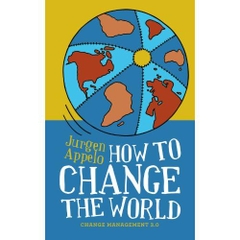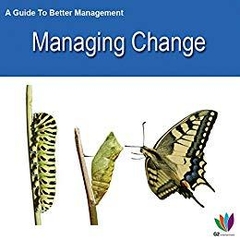-
-
-
Tổng tiền thanh toán:
-
-
Thông tin
-
Tìm sách theo yêu cầu
Why most of what you read about change management is nonsense...
Is it time to euthanize Change Management, and replace the concept with Change-Agile Businesses and Change Leadership? Why? More importantly, how?
Turbulent environments demand constant change, but the mindset, skills, and behaviors taught to business leaders are unhelpful and sometimes flatly misleading. What is more, many high-profile approaches to change do not help: they are based on untested belief systems, unreliable methods, and psychological myth. In The Science of Successful Organizational Change, Paul Gibbons offers the first blueprint for change for that fully reflects the newest advances in mindfulness, behavioral economics, sociology, and complexity theory.
The Science of Organizational Change identifies dozens of change management myths, bad models, and unhelpful metaphors, replacing some with twenty-first century research and revealing gaps where research needs to be done. Paul Gibbons links the origins of theories about change to the history of ideas and suggests that the human sciences will provide real breakthroughs in our understanding of people in the twenty-first century. For example, change fundamentally entails risk, yet little is written for business people about how breakthroughs in the psychology of risk can help change leaders. Change fundamentally involves changing people's minds, yet the most recent research shows that provision of facts may strengthen resistance.
Starting with a rigorous and evidence-based understanding of what makes people in organizations tick, he presents a complete framework for organizing your company around successful change. With case studies from Google, IBM, Shell, British Airways, British Petroleum, HSBC, and Morgan Stanley, Gibbons goes deeper and broader than any previous discussion of the subject.
The Science of Organizational Change identifies dozens of change management myths, bad models, and unhelpful metaphors, replacing some with twenty-first century research and revealing gaps where research needs to be done. Paul Gibbons links the origins of theories about change to the history of ideas and suggests that the human sciences will provide real breakthroughs in our understanding of people in the twenty-first century. For example, change fundamentally entails risk, yet little is written for business people about how breakthroughs in the psychology of risk can help change leaders. Change fundamentally involves changing people's minds, yet the most recent research shows that provision of facts may strengthen resistance.
Starting with a rigorous and evidence-based understanding of what makes people in organizations tick, he presents a complete framework for organizing your company around successful change. With case studies from Google, IBM, Shell, British Airways, British Petroleum, HSBC, and Morgan Stanley, Gibbons goes deeper and broader than any previous discussion of the subject.
In this multi-disciplinary treatment of change leadership, you will learn:
Change will never be easy. To systematically improve your odds, you need science, a framework built on science, and actionable lessons from leaders who've made change work. You need Paul Gibbons' The Science of Organizational Change .
- How a deeper understanding of flaws in human decision-making can help you make far better choices when the stakes are largest
- How new advances in neuroscience have altered best practices in influencing colleagues, negotiating with partners, engaging followers' hearts, minds, and behaviors, and managing resistance
- How to bring greater meaning and mindfulness to your organization - and reap their benefits
- How new ideas from analytics, forecasting, and risk are humbling those who thought they knew the future - and how the human side of analytics, and the psychology of risk are paradoxcially more important in this technologically enabled world
- How to improve your boardroom, promoting more effective conversations about strategy, ethics, and decision-making
- What chaos and complexity theories mean in the context of your own business
- How to create resilient and agile business cultures, and anti-fragile, dynamic business structures
Change will never be easy. To systematically improve your odds, you need science, a framework built on science, and actionable lessons from leaders who've made change work. You need Paul Gibbons' The Science of Organizational Change .
Tại web chỉ có một phần nhỏ các đầu sách đang có nên nếu cần tìm sách gì các bạn có thể liên hệ trực tiếp với Thư viện qua Mail, Zalo, Fanpage nhé
Đăng ký nhận tin qua email
Hãy đăng ký ngay hôm nay để nhận được những tin tức cập nhật mới nhất về sản phẩm và các chương trình giảm giá, khuyến mại của chúng tôi.












